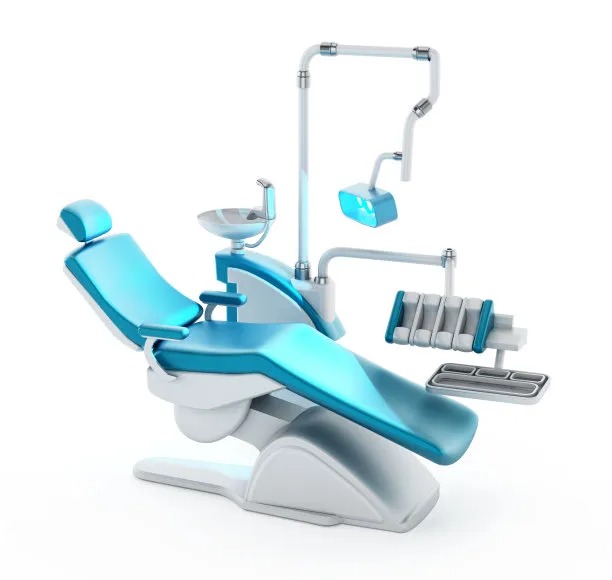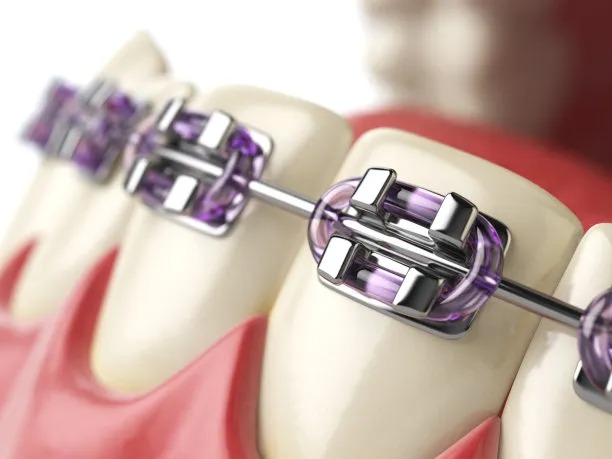Summary: Periodontal disease is a common yet often overlooked oral health issue that can have far-reaching effects on overall health. This article delves into a comprehensive understanding of the causes, effects, and effective treatments of periodontal disease. We explore the risk factors that contribute to its development, the impact it has on one’s overall well-being, and innovative treatment strategies that can effectively manage and mitigate its effects. With an emphasis on better oral health management, this piece aims to empower readers with knowledge and actionable steps to protect their smiles.
1. Causes of Periodontal Disease Explained

Periodontal disease primarily arises from the accumulation of plaque, a sticky film of bacteria that forms on teeth. When not removed through regular brushing and flossing, plaque hardens into tartar, which can lead to inflammation of the gums known as gingivitis. Over time, if untreated, this can escalate to periodontitis, a more severe stage of gum disease characterized by the destruction of supportive tissues and bone.
Another significant factor contributing to periodontal disease is smoking. Tobacco use interferes with gum health, impairing blood flow and reducing the effectiveness of dental treatments. Studies consistently show that smokers are at a higher risk for both the onset and advancement of periodontal disease.
Genetic predisposition also plays a critical role in periodontal disease susceptibility. Some individuals may inherit genes that impact immune response, making them more vulnerable to the bacteria that cause gum disease. Understanding these causes is vital for both prevention and effective management of periodontal health.
2. Effects of Periodontal Disease on Overall Health
The effects of periodontal disease extend beyond just oral health; it is linked to various systemic health conditions. Research suggests a correlation between periodontal disease and cardiovascular diseases, where inflammation caused by gum disease may play a role in heart disease development.
Additionally, there is evidence to suggest that periodontal disease can affect diabetes management. Poor oral health can lead to higher blood glucose levels, complicating diabetes control. The relationship is bidirectional; those with diabetes are also at a greater risk of developing periodontal issues.
Moreover, periodontal disease can negatively impact one’s quality of life, causing issues such as bad breath, pain, and tooth mobility. Social and psychological factors may also arise, as individuals may feel embarrassed about their condition, affecting their self-esteem and social interactions.
3. Effective Treatments for Periodontal Disease
Effective treatment for periodontal disease begins with professional dental cleanings to remove plaque and tartar buildup. These routine procedures can reverse early-stage gum disease and are essential for more advanced cases. Dentists may also provide scaling and root planing, a deep-cleaning technique designed to clean below the gum line.
In more severe cases, surgical options may be required to restore gum health. Procedures like flap surgery or bone grafts can help regenerate lost tissue and support. These advanced techniques can significantly improve oral health and may prevent tooth loss.
Moreover, integrating good oral hygiene practices at home is imperative for long-term management. Regular brushing, flossing, and the use of antimicrobial mouth rinses can help maintain gum health. Regular check-ups with a dental professional allow for early diagnosis and intervention, ensuring that periodontal disease is managed effectively.
4. Importance of Preventive Oral Health Measures
Preventive measures play a crucial role in managing oral health and preventing periodontal disease. Patients are encouraged to maintain regular dental visits for cleanings and check-ups, allowing for early detection of potential issues. Dental professionals can offer personalized advice on effective brushing and flossing techniques to ensure comprehensive plaque removal.
Maintaining a balanced diet rich in essential nutrients also supports oral health. Nutrients like vitamin C and calcium can strengthen gums and teeth, making them less susceptible to disease. Avoiding sugary snacks and beverages can also help minimize plaque formation.
Lastly, promoting awareness about the importance of oral hygiene can have a lasting impact on community health. Education on the risks of periodontal disease and the benefits of preventive care can empower individuals to take charge of their oral health, leading to better overall health outcomes.
Summary:
In summary, understanding periodontal disease involves recognizing its causes, effects, and effective treatments. This knowledge is essential for taking proactive steps in maintaining oral health, ultimately promoting a holistic approach to overall well-being.
By adopting preventive measures and seeking timely interventions, we can preserve our smiles while also improving our quality of life. Together, let us prioritize dental health for a brighter future.
This article is compiled by Vickong Dental and the content is for reference only
Vickong Dental
Vickong Dental is a large medical group established in Hong Kong in 2008 by professors from well-known medical universities in Guangdong and Hong Kong, as well as medical doctors from key national '985' universities (including Master's supervisors and senior professors). The chain of branches brings together expert dentists with PhDs and Master's degrees from Hong Kong and Mainland China, committed to providing high-quality dental treatment.
"Vickong Dental Practices the University Motto of 'Healing and Serving Society,' with a Stable Operation for Sixteen Years. It Has Been honored with Hong Kong Enterprise Leaders's Choice,' and is a Global Trusted Implant Center for the Nobel Implant System. Recommended by Hong Kong Metro Broadcast and Guangdong Television, it Serves Customers from Over Thirty Countries and Regions, Gaining the Trust and Favor of Citizens from the Guangdong-Hong Kong-Macau Greater Bay Area and Surrounding Cities.

Thousands of customers' unanimous praise
The most recognized and highly recommended dental service by customers in the Guangdong-Hong Kong-Macau Greater Bay Area
We Ensure You Receive Detailed Care and Attention Here
Hong Kong standards, Shenzhen prices, Your Trusted English-speaking dentists

Vickong Dental Medical-Grade Instrument Disinfection Process
Vickong Dental Medical-Grade Instrument Disinfection Process

Vickong Dental Chain: A Warm and Comfortable Environment for Treatment






Appointment Hours

Q&A
Why choose Vickong Dental?
Vickong Dental practices the university motto 「Medicine to Benefit Society」, with each branch bringing together highly qualified dentists with doctoral and master’s degrees from Hong Kong and the Mainland, and has maintained seventeen years of steady operation。Recipient of 「2024 Hong Kong Enterprise Leaders Brand」, 「2025 Hong Kong Enterprise Leaders Brand」, a Nobel Biocare Global Trusted Implant Center, and a brand recommended by Metro Radio Hong Kong and Guangdong TV。
To date, we have served customers from more than thirty countries and regions,earning exceptionally high word-of-mouth recognition and trusted recommendations from residents across the Guangdong-Hong Kong-Macao Greater Bay Area and surrounding cities
We have eight major branches in Zhuhai、Shenzhen,and a consultation and service assurance center in Hong Kong,so you can book a free consultation at any time for any questions,which is very reassuring.
If I do not accept the quotation after the CT scan, will I be charged??
No! As long as the actual treatment has not started, you will not be charged any fees.
Will there be any additional charges during the treatment process?
No, there won’t be any additional charges. Before treatment begins, we will clearly explain the treatment plan and its corresponding fees. Only after the patient agrees and signs the consent form will we proceed with the dental service.
Can I pay in Hong Kong dollars?
Yes. Vickong Dental accepts payment in Hong Kong dollars. The amount will be converted based on the exchange rate of the day, and the applicable rate will be clearly communicated to you in advance.
Can I reschedule my appointment at any time?
Yes. Please contact us via **WeChat** or **WhatsApp** as early as possible, providing your original appointment time and details, along with your preferred new date and time slot for rescheduling.













